Sulfur is a naturally occurring element that may be found in rocks and is found in many minerals. It’s a type of fertilizer that may be found in natural gas. It may be found in a variety of pesticides and insecticides. Sulfur poisons insects, reptiles, fish, and mammals. It is also used on food crops as a crop fungicide and fertilizer.
So, the real question is does it avoid fungus?
The question is how sulfur stops diseases such as fungi? Sulfur is an element that occurs naturally in soil, plants, foods, and water and have antifungal and antibacterial properties to kill fungi.
Sulfur is present in some proteins in the form of amino acids and products as a natural fungicide that kills on contact. Sulfur is an essential component of plants. Pesticides containing sulfur are recommended and used by gardeners all over the world. Sulfur kill pathogens through direct contact or fumigation (sulfur vapors).
What are some examples that contain sulfur?
Specks of dust, fertilization liquids, and a few gas cartridges are examples of sulfur-containing items.
Field crops in agriculture, most of the tap and fibrous root crops, fruit-producing trees, indoor fruits and nuts, vegetables, etc., are among the crops that use sulfur and benefit from it. They are also beneficial for food and non-food crops, as well as in outdoor landscaping areas.
There are around 200 active sulfur-containing products on the market and several among these are a part of a beautiful garden.
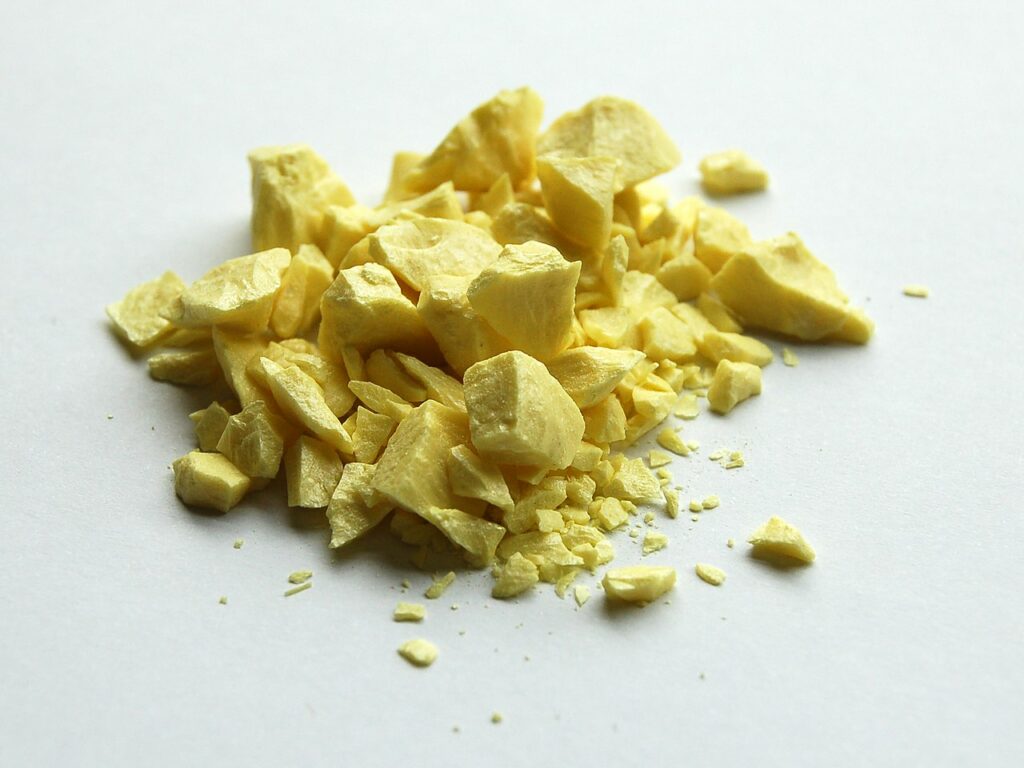
Some of the products are okay and fit for use in organic gardening. Non-pesticide sulfur-containing compounds are used as soil amendments or fertilizers.
How does it kill fungi?
Sulfur kills fungi when they come into touch with it.
Some specialists do believe that sulfur may react with plants or fungi to generate a dangerous poison. Sulphur kills the fungal disease-spreading spores by disrupting respiration within their cells. Insects can be dead by sulfur if they come into touch with it or consume it. It disrupts their natural biological systems, reducing their ability to generate energy.
Is this an effective fungicide for plants?
Sulfur is one of the effective pests when applied appropriately. It is an effective fungicide when used against soil-borne infections. It also protects against the vast majority of plant diseases. It can help prevent airborne illnesses like powdery mildew if used before symptoms emerge on the plant.
Sulfur is also advantageous in crop parts that are not in direct contact with the soil. This is because sulfur may spray it on plant leaves, which then convey it to the soil.
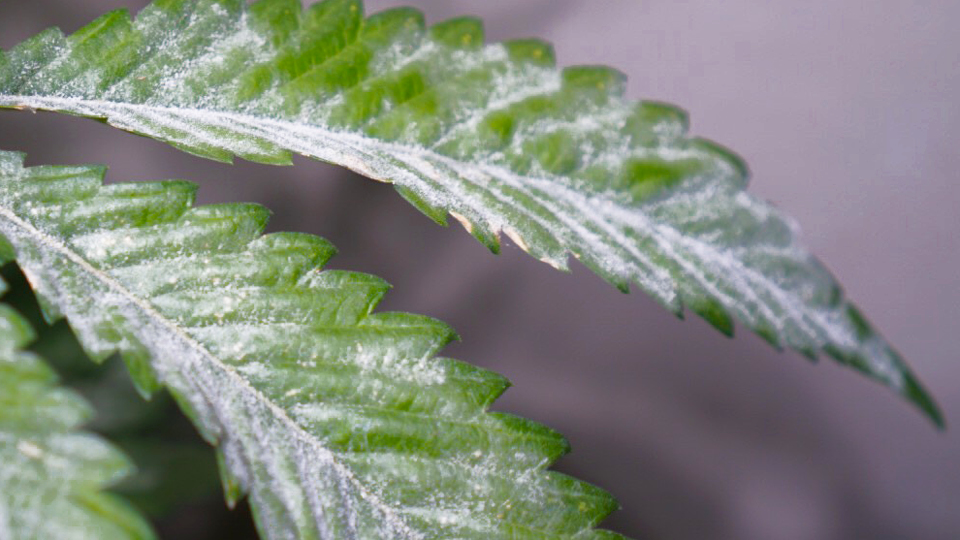
Sulfur application as a fungicide
Sulfur may destroy infections like fungus by direct touch or fumigation with sulfur gases. As a result, use sulfur fungicides as frequently as a spray on plants. Here are some of the stages in the making of sulfur as a fungicide:
You first need to buy it and mix it with water. In general, three tablespoons of fungicide dust to one gallon of water is the mixing ratio. Mix thoroughly, but remember sulfur does not dissolve completely in water. Also for your comfort, there are already pre-mixes available in the market.
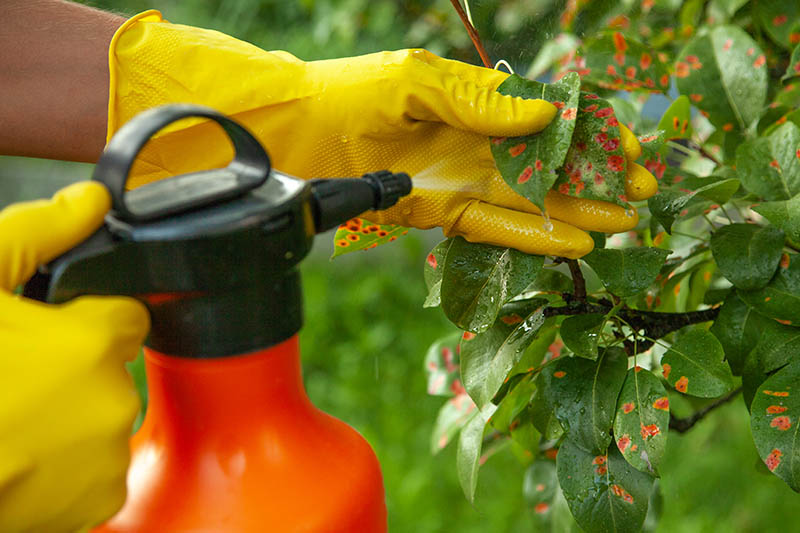
Spray the sulfur on your plant’s leaves or stems. This fungicide will aid in the management and prevention of illnesses.
Some sulfur fungicide spray residue will remain on the plants. So no need to be panicking, since it implies your plants will be pest-free for a time after treatment. There’s also no need to be concerned about this residue washing into the soil and potentially harming the ecosystem as it is natural.
To keep your sulfur fungicide from washing away, spray it 10-14 days after rain.
Remember to have these things handy- water, the skin covering clothes, covered shoes, gloves, etc.
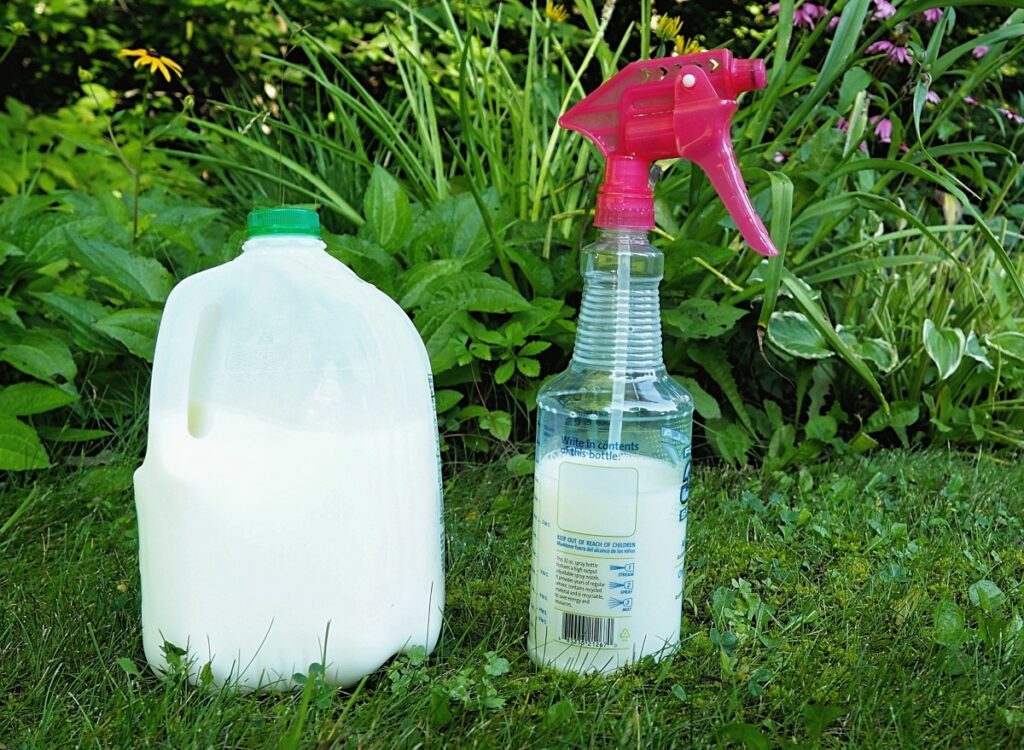
Considerations while using sulfur to kill fungus
It is vital to monitor the conditions in which the sulfur fungicide is applied. If you live in a hot climate, for example, do not use it when the temperature exceeds 30 degrees Celsius otherwise your plants will soon turn dry.
It is totally safe to use it with a pesticide like neem oil. Give proper intervals between the reapplications.
Use care while applying sulfur to plants. Although it is only mildly toxic, it can be hazardous to humans and animals. As a result, when spraying, use protective equipment to avoid any air-related diseases. Keep your pets away from this solution after spraying as it is toxic for them.
Benefits of sulfur as it kills fungus
As we know how harmful pesticides are these days for both, the plant and our environment, however, sulfur is not hazardous to honeybees, birds, etc. You don’t have to be concerned about organic sulfur plant fungicides harming pollinators or killing them, so you may use it with confidence in your garden.
Because sulfur occurs naturally in the environment, it is not a serious worry if it enters the soil. It will decay and rejoin the natural sulfur cycle of the Earth. However, water drainage is an issue while using sulfur, as it doesn’t dissolve readily.
Sulphur Treatment – diseases and results
Sulfur fungicides are effective against a wide range of diseases in fruits, vegetables, and ornamental plants. You can use it to treat Alternaria leaf spots, powdery mildew, rust, black rot, brown rot, scab, and blossom blight. Be cautious that if the plant already has rust, scab, rot, or leaf spot damage, it will not restore the damaged tissue, and you should definitely clip off any severely damaged leaves.
This can be challenging in the case of rot since you must remove the whole thing or at least five or six inches below the visible rot. Although it is still preferable to remove severely damaged leaves. Regardless of treatment, blossom blight usually causes the blossom to drop, however, the plant may flower again.
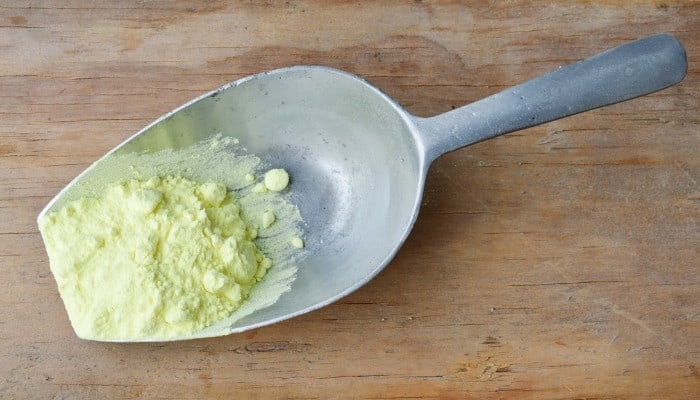
So, to sum up, if you apply neem oil to your plants like roses in your gardens, wait at least two weeks before adding sulfur, or the two will combine to burn the leaves of your plants in a way similar to sunscald.
Although sulfur is safe for bees, birds and a few other animals it is dangerous to humans and pets! If you come into contact with it, it can irritate your eyes, and if you breathe it in, it can irritate your respiratory system.
